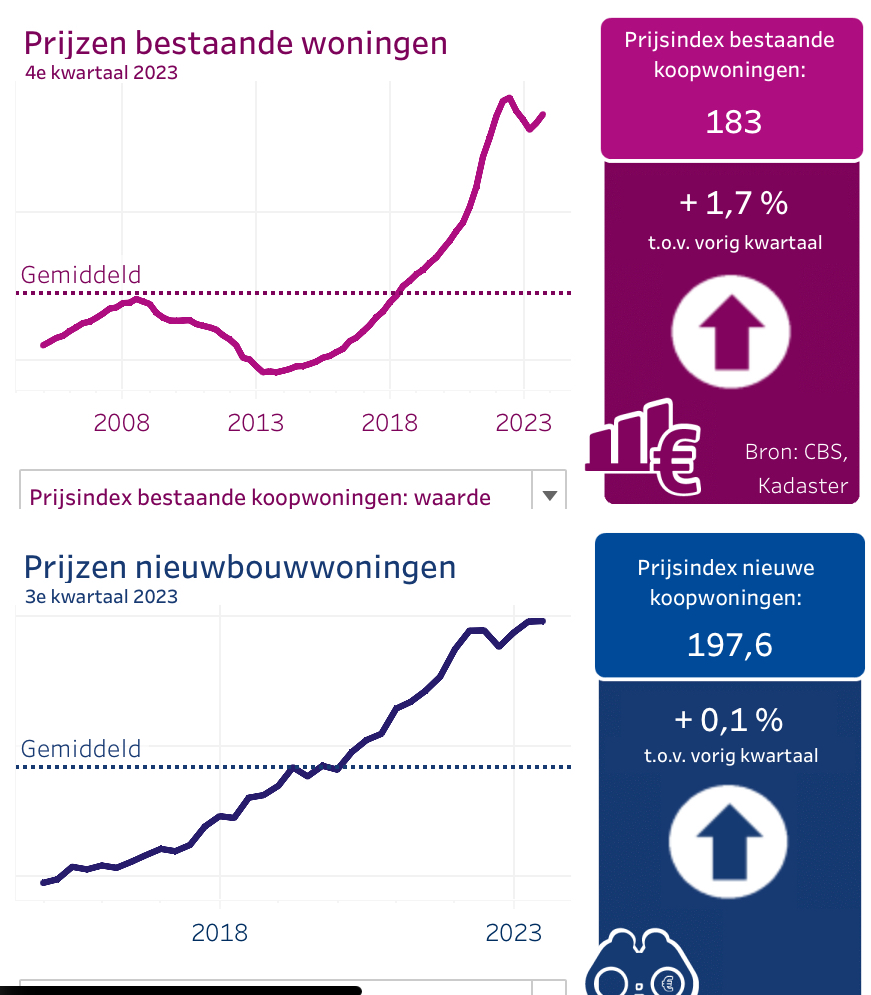The role of the ‘makelaar’ in the housing market in the Netherlands
Buying (or selling) a house in the Netherlands is a significant milestone. The processes of buying and selling are not overly complex, but the amount of money involved is huge and there are risks of losing significant amounts when going in unprepared. So preparation and risk management throughout the process is essential.
The Dutch housing market can be complex, and navigating it successfully often requires expert assistance. This is where a real estate agent, known locally as a “makelaar,” can play a pivotal role. In this article, we’ll explore the role of a real estate agent in the housing market in Netherlands, with a focus on benefits, pitfalls, and tips on selecting the right agent.
while a real estate agent offers many services you can negotiate which services you want to avail and how much that will cost you. In any case it makes sense to talk to multiple agents to compare their offerings.
Understanding the Dutch Real Estate Market
Before diving into the role of a real estate agent, it’s important to understand the Dutch real estate market. The Netherlands is known for its high population density and limited land availability, which often results in a competitive housing market, particularly in urban areas like Amsterdam, Rotterdam, The Hague, and Utrecht. Housing prices have been on the rise, and demand often outstrips supply, making it a seller’s market.
As with most markets, the housing market is cyclical. In the 1990s and early 2000s housing prices were rising sharply. This was followed by a sharp decline in prices in the period 2008-2013 as a result of the international ‘credit crisis’ (‘Kredietcrisis’). Since 2013 the prices for both existing and new-built houses have been rising significantly.
.
There are multiple factors at plan as to why the prices have risen so much, but the main reasons seem to be:
- an aging population
- smaller family sizes
- lack of new houses being built.
The Role of a Real Estate Agent
A real estate agent in the Netherlands offers a range of services that are crucial for anyone looking to buy or sell a property. While the use of their services is officially not required, you will most likely interact with one or more agents in your journey of buying or selling a house. We can distinguish two types of realtors: one that helps to buy a house (‘aankoopmakelaar’), and one that helps to sell a house (‘verkoopmakelaar’). Below we will discuss the different actions (or services) a realtor performs. We will make distinctions between the aankoop- and verkoop-makelaar where necessary.
1. Market Knowledge and Insights

- Local Expertise: One of the primary benefits of working with a real estate agent is their in-depth knowledge of the local market. They have insights into neighborhoods, property values, and market trends.
When you are selling a house a realtor should be able to help you in identifying the unique selling points for your house in relation to the local area. He should also be able to come up with a good strategy to sell the house for the best price based on other sales in the area. When you are buying a house the realtor should be able to create a good shortlist of houses which are attainable for your situation, as well as help you match expectations to reality based on the local situation. - Property Valuation: Accurately assessing the value of a property is crucial in a competitive market. A real estate agent can provide a professional valuation based on current market conditions, recent sales, and property features. This ensures you make informed decisions and avoid overpaying or under asking for a property.
2. Access to Listings and Off-Market Properties

- Comprehensive Listings: While many properties are listed online, real estate agents often have access to exclusive listings that are not available to the general public (‘stille verkoop’). These off-market properties can offer unique opportunities, particularly in a competitive market. This can also be a good way to get some offers without having to advertise your house publicly. When selling a house through the realtor you will get access to listing your house on the most-used housing platform in the Netherlands: Funda, which is owned by the realtor association NVM. Even if you want to perform most actions in the sales process yourself, this is still one of the most valuable services a real estate agent offers.
- Networking: Real estate agents often have extensive networks within the industry, including connections with other agents, developers, and property owners. This network can provide early access to new listings and potential deals when you are looking to buy, or easy access to monied and qualified buyers when you are selling.
3. Navigating Legal and Financial Complexities

- Understanding Dutch Property Law: The Dutch legal system has specific regulations and procedures related to property transactions. A real estate agent can help you navigate these legal complexities, ensuring that all necessary paperwork is in order and that you comply with local laws. Note that the realtor is only an intermediary, so he/she has no formal responsibility in this. All responsibilities regarding validity and content of contracts lies with the buyer/seller.
- Financial Guidance: Buying a property involves significant financial investment, and understanding the financial implications is crucial. A real estate agent can provide guidance on securing a mortgage, understanding property taxes, and managing other costs associated with buying a home in the Netherlands. Note that the realtor is only an intermediary and has no responsibility on the buyer actually having (or getting) the money to be able to complete the transaction.
4. Negotiation and Offer Management

- Strategic Negotiation: Negotiating the purchase price is a critical aspect of buying a home. A skilled real estate agent can negotiate on your behalf, leveraging their market knowledge and experience to secure the best possible deal. They can also advise on the appropriate offer price, taking into account market conditions and the buyer’s or seller’s expectations.
- Offer Presentation: Presenting an offer that stands out is crucial, especially in a competitive market. A real estate agent can help craft a compelling offer that not only meets the seller’s financial expectations but also highlights your commitment and ability to complete the purchase.
5. Property Inspections and Due Diligence

- Conducting Inspections: Before finalizing a purchase, it’s essential to thoroughly inspect the property to identify any potential issues. A real estate agent can recommend trusted professionals to conduct property inspections, ensuring that you are aware of any structural, electrical, or plumbing concerns. Note that a realtor working for the seller has the obligation to inform prospective buyers about known issues. Also note that performing an externals inspection is paid by the prospective buyer, and might be part of the contract negotiations.
- Conducting Viewings: the realtor working for the seller will organize viewings in which prospective buyers have the chance to see and inspect the house.
6. Facilitating Communication and Coordination

- Liaison with Parties: A real estate transaction involves multiple parties, including the buyer, seller, notary, mortgage broker, and inspectors. A real estate agent acts as the central point of communication, coordinating between all parties to ensure a smooth process.
- Multilingual Support: For expatriates and non-Dutch speakers, language can be a barrier in the buying process. Many real estate agents in the Netherlands are fluent in English and other languages, providing essential support in understanding contracts and legal documents. Note that in all parts of the process it is possible to involve translators. These have to be paid by the parties that avail them.
7. Closing the Deal

- Finalizing Contracts: Once an offer is accepted, the next step is to finalize the sale through a purchase agreement (koopovereenkomst). A real estate agent ensures that the contract is fair and accurately reflects the agreed-upon terms. They also facilitate the signing process, often coordinating with the notary who will handle the legal transfer of property ownership.
A model contract (Model koopovereenkomst voor een bestaande eengezinswoning (model 2018) for houses, or Model koopovereenkomst voor een bestaand appartementsrecht (model 2018) for apartments) is often used. Newer versions than the ones in the links might exist. This model is aligned between major associations representing realtors, home owners and other relevant parties like NVM, Vereniging Eigen Huis and others. - Completion and Handover: On the day of completion, the buyer and seller meet with the notary to finalize the transaction. The real estate agent will be present to assist with any last-minute issues and ensure that the handover of keys is smooth and trouble-free.
How to Choose the Right Real Estate Agent in the Netherlands
Selecting the right real estate agent is crucial to a successful property purchase. Here are some tips to help you choose the best agent for your needs:
1. Check Credentials and Experience
- Ensure that the agent is registered with a recognized professional body such as the NVM (Nederlandse Vereniging van Makelaars) or VBO Makelaars. These associations require members to adhere to a code of conduct and maintain high professional standards, as well as having done appropriate training and certification.
- Look for an agent with extensive experience in the local market, particularly in the area where you’re looking to buy.
2. Seek Recommendations and Read Reviews
- Personal recommendations from friends, family, or colleagues who have recently purchased a home in the Netherlands can be invaluable.
- Online reviews and testimonials can also provide insight into an agent’s reputation and customer satisfaction.
3. Evaluate Communication and Rapport
- Effective communication is key to a successful partnership. Choose an agent who listens to your needs, is responsive, and keeps you informed throughout the process.
- Building a good rapport with your agent is essential, as buying a home is a significant emotional and financial commitment.
4. Discuss Fees and Services
- Real estate agents in the Netherlands typically charge a commission based on a percentage of the purchase price, usually ranging from 1% to 2%. Be sure to discuss fees upfront and understand what services are included.
- Some agents offer additional services, such as mortgage advice or property management, which could be beneficial depending on your needs.
The legal position of the real estate agent
The agent has an intermediary role. This means that he is representing a client. This limits his legal position. A common complaint is that something in the house is not as it was advertised by the agent (verborgen gebrek). A common response is to blame the agent. However, the liability is at the seller.
When such a thing happens first go to the juridisch loket or lawyer. It is advisable to get a rechtsbijstandsverzekering before starting the process of buying a house. There is a complaint possibility at the realtor organization.
Determining liability might be difficult. We are not legal experts so cannot advise, but think of the following examples:
a. After key handover you discover a large wet spot in the attic. You look at the pictures that were on Funda where you also see the spot. In the documents no existing leakages are mentioned. The realtor said no existing leakages are there. Who is responsible for the damage? While the seller a realtor might have lied, the leakage could also have been discovered by the buyer beforehand. It might be difficult to prove a verborgen gebrek
b. The same situation as before, but this time the wet spot was hidden behind some gipsplaten. In this case it might be a verborgen gebrek.
See for example this court case where an agent provides an invalid advise to his customer. The realtor is deemed not responsible.
Conclusion
The role of a real estate agent in buying a house in the Netherlands is multifaceted and invaluable. From providing market insights and negotiating deals to navigating legal complexities and ensuring a smooth transaction, a skilled agent can make the difference between a stressful experience and a seamless, successful purchase.
As you embark on your journey to buy or sell a home in the Netherlands, partnering with a knowledgeable and experienced real estate agent will not only save you time and effort but also help you make informed decisions that align with your goals.